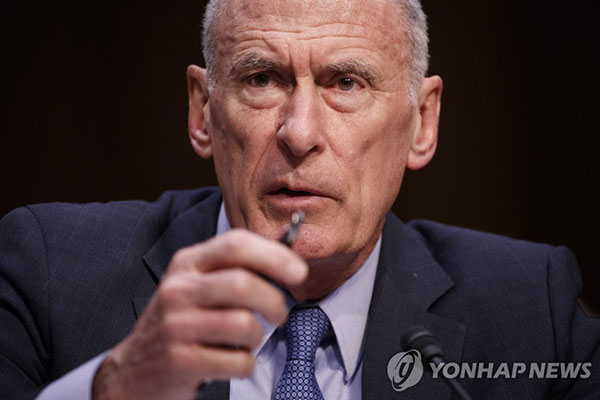North Korea is unlikely to give up its nuclear weapons program, the U.S. intelligence chief said on Jan. 29, 2019, calling into question the efficacy of ongoing diplomacy to denuclearize the regime.
Director of National Intelligence Dan Coats made the remark at a Senate panel hearing, with only weeks to go before a planned second summit between U.S. President Donald Trump and North Korean leader Kim Jong-un.

"We currently assess that North Korea will seek to retain its WMD capabilities and is unlikely to completely give up its nuclear weapons and production capabilities because its leaders ultimately view nuclear weapons as critical to regime survival," Coats told the Senate Intelligence Committee, referring to weapons of mass destruction.
The North Korean leader "continues to demonstrate openness to the denuclearization of the Korean Peninsula," Coats said.
But the assessment that Kim is unlikely to surrender his nukes is "bolstered by our observations of some activity that is inconsistent with full denuclearization."
The intelligence chief did not go into detail.
Instead, in a report submitted to the committee, he highlighted past North Korean action.
"North Korea has underscored its commitment to nuclear arms for years, including through an order to mass-produce weapons in 2018 and an earlier law -- and constitutional change -- that affirmed the country's nuclear status," Coats said in the annual Worldwide Threat Assessment.
Kim agreed at his first summit with Trump in June to work toward "complete denuclearization of the Korean Peninsula."
Coats characterized that as "a formulation" linked to past demands that the U.S. end its military deployments and exercises involving advanced U.S. capabilities in South Korea.
"The capabilities and threat that existed a year ago are still there," Lt. Gen. Robert Ashley, director of the Defense Intelligence Agency, told the same hearing.
Trump and Kim are planning to meet near the end of February at a location to be announced at a later date, according to the White House.
Both sides are under pressure to deliver on last year's agreement, with the U.S. demanding more concrete denuclearization steps and the North calling for sanctions relief and other confidence-building measures.
Coats said the regime continues to feel the pressure of international sanctions despite its attempts to evade them through illicit ship-to-ship transfers of petroleum, among other activities.
He also assessed in the report that the North's conventional military capabilities continue to pose a threat to South Korea, Japan and U.S. forces in the region.
Kim is pursuing more accurate artillery and ballistic missile strike capabilities as well as advanced drones, he said. (Yonhap)

